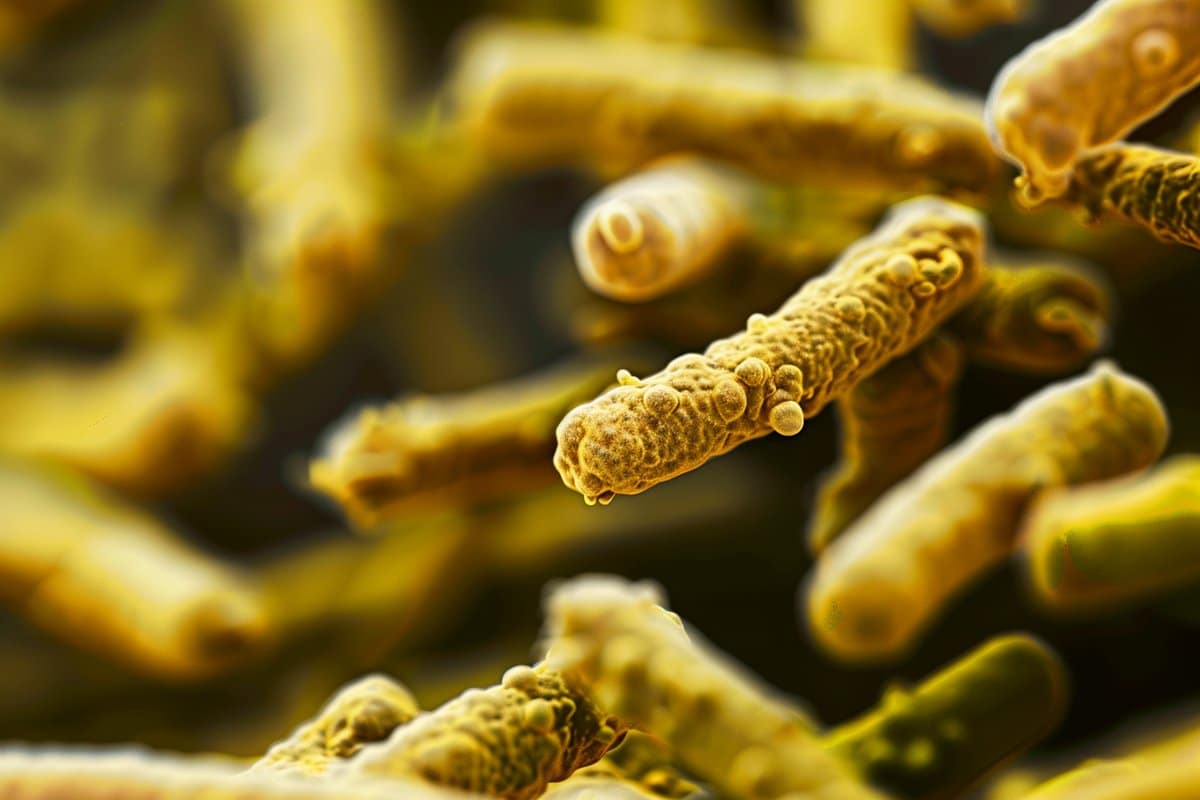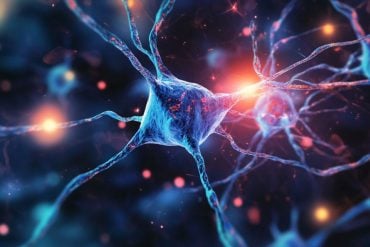Summary: A new clinical trial revealed fecal microbiota transplantation (FMT) as a potential new treatment for Parkinson’s disease (PD), showing significant improvement in motor symptoms. The study explores the connection between the gut microbiome and Parkinson’s, finding that patients with PD often exhibit altered gut bacteria and increased intestinal inflammation.
By transplanting healthy donor stool into patients with early-stage PD, researchers noted marked improvements in motor functions and reductions in constipation over 12 months, highlighting FMT’s promise for enhancing the quality of life for those with PD.
Key Facts:
- The clinical study demonstrated that FMT significantly improved motor symptoms in Parkinson’s patients compared to a placebo group after one year.
- This research underscores the emerging link between the gut microbiome and neurodegenerative diseases, suggesting that gut bacteria play a crucial role in the development and symptomatology of PD.
- The study’s success opens the door for further research into targeted therapies, such as developing a ‘bacterial pill’ that could offer a less invasive treatment option for PD in the future.
Source: VIB
Parkinson’s disease (PD) is a common neurodegenerative disease that affects millions worldwide.
Now, a groundbreaking clinical study conducted by researchers at Ghent University Hospital, VIB, and Ghent University has demonstrated the potential of fecal microbiota transplantation (FMT) to improve symptoms in patients with PD.
This research, published in eClinicalMedicine, provides promising evidence that FMT could be a valuable new treatment for this debilitating disorder.

Parkinson’s disease is a neurodegenerative disorder that affects millions worldwide. Its prevalence is rapidly increasing due to factors like pesticide use and an aging population. Symptoms of the disease include both motoric and non-motoric symptoms.
The motoric symptoms, such as balance problems, stiffness, and the characteristic tremor, are the best known and almost always the reason for the eventual diagnosis. However, non-motor symptoms, such as loss of smell, constipation, and REM sleep disturbances, often develop up to 20 years before diagnosis in a large number of people with the disease.
The role of the microbiome
In Parkinson’s disease, a protein called alpha-synuclein misfolds and clumps together. Those clumps then damage dopamine-producing nerve cells in the brain, which leads to the typical Parkinson’s symptoms. Current treatments, primarily medications that replace dopamine, often have side effects and lose effectiveness over time.
The protein clumps are believed to be formed in the gut wall at a very early stage of the disease, from which they reach the brain cells via the vagus nerve, which connects the gut and the brain.
This process can be influenced by gut bacteria. Indeed, emerging research suggests a surprising link between PD and the gut microbiome, the trillions of bacteria residing in our intestines.
Patients with Parkinson’s often have an altered gut microbiome compared to healthy individuals and they often show more (intestinal) inflammation and a disrupted intestinal barrier.
That’s why the neurology department at University Hospital Ghent (UZ Gent), led by Prof. Patrick Santens, joined forces with Prof. Debby Laukens of Ghent University and the team of Prof. Roosmarijn Vandenbroucke at the VIB-UGent Center for Inflammation Research.
The team wanted to investigate whether a fecal microbiota transplant (FMT) with healthy gut bacteria from a donor could have a significant impact on the evolution of Parkinson’s disease symptoms over one year.
The clinical study showed that after 12 months, the actively treated group showed significantly more improvement in motor symptoms compared to the placebo group.
Via the nose into the small intestine
The clinical study, named GUT-PARFECT, recruited participants with early-stage Parkinson’s disease and healthy donors who donated their stool to the Gentse Stoelgangbank.
All participants with Parkinson’s disease received the stool through a tube that was inserted through the nose and advanced into the small intestine to deliver the mixture directly there.
“Our results are really encouraging!” says Dr. Arnout Bruggeman, researcher at VIB-UGent-UZ Gent and first author of the study.
“After twelve months, participants who received the healthy donor stool transplant showed a significant improvement in their motor score, the most important measure for Parkinson’s symptoms.”
The improvement in motor symptoms became even more pronounced between the sixth and twelfth month after the transplant, suggesting a potential long-lasting effect.
Additionally, participants had less from constipation, a frequent and bothersome symptom for many people with Parkinson’s disease. More research is needed to determine whether this treatment also slows the progression of the disease.
Way forward
This study is a significant step forward in the search for new treatment options for Parkinson’s disease.
“Because there were major questions about the feasibility at the start of the study, financing this research was no easy task,” says Prof. Patrick Santens.
“This research was only possible thanks to the support of patient organizations, donations to the UGent Parkinson Research Fund, and the willingness of participants to undergo the rather invasive procedures.”
“Our study provides promising hints that FMT can be a valuable new treatment for Parkinson’s disease,” says Prof. Roosmarijn Vandenbroucke.
“More research is needed, but it offers a potentially safe, effective, and cost-effective way to improve symptoms and quality of life for millions of people with Parkinson’s disease worldwide.”
“Our next step is to obtain funding to determine which bacteria have a positive influence. This could lead to the development of a ‘bacterial pill’ or other targeted therapy that could replace FMT in the future,” says Prof. Debby Laukens.
Funding: This study was made possible because of the patients and their families who participated in the trial, as well as the donors from the Gentse StoelgangBank and support from the Flemish Parkinson’s patient organizations, VPL and Parkili.
The research was funded by the Biocodex Microbiota Foundation, the many gifts to the UGent Parkinson Research Fund, and the FWO Program.
About this Parkinson’s disease research news
Author: India Jane Wise
Source: VIB
Contact: India Jane Wise – VIB
Image: The image is credited to Neuroscience News
Original Research: Open access.
“Safety and efficacy of faecal microbiota transplantation in patients with mild to moderate Parkinson’s disease (GUT-PARFECT): a double-blind, placebo-controlled, randomised, phase 2 trial” by Roosmarijn Vandenbroucke et al. EClinicalMedicine
Abstract
Safety and efficacy of faecal microbiota transplantation in patients with mild to moderate Parkinson’s disease (GUT-PARFECT): a double-blind, placebo-controlled, randomised, phase 2 trial
Background
Dysregulation of the gut microbiome has been implicated in Parkinson’s disease (PD). This study aimed to evaluate the clinical effects and safety of a single faecal microbiota transplantation (FMT) in patients with early-stage PD.
Methods
The GUT-PARFECT trial, a single-centre randomised, double-blind, placebo-controlled trial was conducted at Ghent University Hospital between December 01, 2020 and December 12, 2022. Participants (aged 50–65 years, Hoehn and Yahr stage 2) were randomly assigned to receive nasojejunal FMT with either healthy donor stool or their own stool.
Computer-generated randomisation was done in a 1:1 ratio through permutated-block scheduling. Treatment allocation was concealed for participants and investigators.
The primary outcome measure at 12 months was the change in the Movement Disorders Society-Unified Parkinson’s Disease Rating Scale (MDS-UPDRS) motor score obtained during off-medication evaluations. Intention-to-treat analysis was performed using a mixed model for repeated measures analysis.
This completed trial is registered on ClinicalTrials.gov (NCT03808389).
Findings
Between December 2020 and December 2021, FMT procedures were conducted on 46 patients with PD: 22 in the healthy donor group and 24 in the placebo group. Clinical evaluations were performed at baseline, 3, 6, and 12 months post-FMT. Full data analysis was possible for 21 participants in the healthy donor group and 22 in the placebo group. After 12 months, the MDS-UPDRS motor score significantly improved by a mean of 5.8 points (95% CI −11.4 to −0.2) in the healthy donor group and by 2.7 points (−8.3 to 2.9) in the placebo group (p = 0.0235). Adverse events were limited to temporary abdominal discomfort.
Interpretation
Our findings suggested a single FMT induced mild, but long-lasting beneficial effects on motor symptoms in patients with early-stage PD. These findings highlight the potential of modulating the gut microbiome as a therapeutic approach and warrant a further exploration of FMT in larger cohorts of patients with PD in various disease stages.
Funding
Flemish PD patient organizations (VPL and Parkili), Research Foundation Flanders (FWO), Biocodex Microbiota Foundation.






